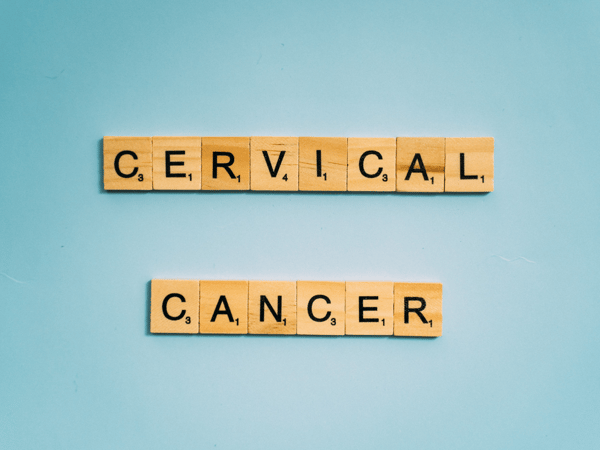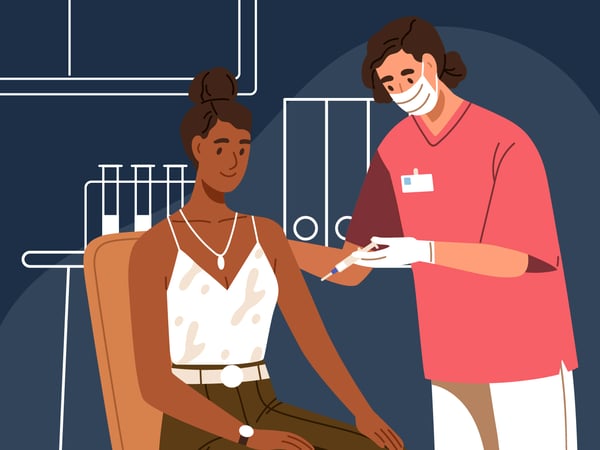The HPV vaccine is a crucial preventive measure against human papillomavirus (HPV) infection and related diseases, including cervical, anal, and other cancers, as well as genital warts. This guide gives you all the essential information about the HPV vaccine, its benefits, and its importance. Whether you are a parent, a young adult, or just curious, this article will answer your questions and help you understand the HPV vaccine better.
What is the HPV vaccine?
The HPV vaccine, the main one being Gardasil 9 (previous versions were Gardasil and Gardasil 4, protects against nine strains of human papillomavirus (HPV). These high-risk strains cause most HPV-related diseases, such as cervical cancer and genital warts. The vaccine helps your immune system fight the virus if you encounter it, and is a key part of HPV-related disease prevention.
Benefits of the HPV vaccine
Reduces risk of HPV-related warts and cancers
The HPV vaccine reduces the risk of diseases caused by the HPV virus. It protects against cervical cancer, genital warts, and other cancers caused by HPV. It can prevent up to 90% of cervical cancer cases [1][2].
Promotes public health
Widespread use of the vaccine can lead to herd immunity. This means even people who aren't vaccinated are protected because the overall spread of the virus is reduced [3][4].
Long-lasting protection
Studies show that the HPV vaccine offers long-lasting protection, with immunity lasting at least 10 years. It might even offer lifelong protection with the full vaccination schedule [5][6].
Key points about the HPV vaccine
- Purpose: The HPV vaccine protects against infection from several strains of HPV that cause most cervical cancers, anal cancers, and genital warts [1][2].
- Recommended ages: The HPV vaccine is recommended for children aged 11-12 years. Catch-up vaccination is available for those who missed it earlier, up to age 26 [1][3].
- Dosage: For those starting the vaccine schedule aged 24 or less, one dose is required. For those aged 25-44, two doses are needed, and three doses for those with immunosuppression. [3][4].
- Safety: The HPV vaccine is extremely safe, with mild side effects like pain or swelling at the injection site being the most common. Serious adverse reactions are very rare [4][5].
- Effectiveness: The HPV vaccine is highly effective, reducing HPV infections and related diseases like genital warts by over 80% among vaccinated populations. Its protection lasts for at least 10-12 years with no evidence of waning [2][4].
- Importance: By preventing HPV infections, the vaccine helps reduce the risk of several cancers and genital warts, potentially saving hundreds of lives annually in countries with vaccination programmes [3][5].
Who should get the HPV vaccine?
Recommended age and gender
The vaccine is recommended for boys and girls starting at ages 11-12, but it can be given as early as age 9. This makes it an essential HPV vaccine for boys and girls alike [1][2]. It is also recommended for people up to age 26 who did not get vaccinated earlier. Sometimes, it is suggested for people up to age 45, depending on individual cases [1][4].
Possible side effects of the HPV vaccine
The HPV vaccine, like all vaccines, can cause side effects. Most are mild and temporary. These include:
- Pain, redness, or swelling at the injection site
- Fever
- Headache
- Fatigue
- Muscle or joint pain
Serious side effects are rare. If you have severe allergic reactions or other unusual symptoms, seek medical help right away [4][5].
There is no evidence that the HPV vaccine causes any long-term side effects or health complications. Multiple large studies and safety monitoring by health authorities have found no link between the HPV vaccine and chronic illnesses, infertility, cancer, or other serious conditions. The claims that the HPV vaccine can cause chronic fatigue syndrome, infertility, autism, or cancer have been thoroughly investigated and found to be inaccurate and not supported by scientific evidence. These myths have been debunked and discredited [3][4].
When to get the HPV vaccine
Primary immunisation schedule
The standard schedule for the HPV vaccine involves two doses for those who start before age 15, given six to twelve months apart. For those starting at age 15 or older, three doses are recommended over six months [1][3].
HPV vaccine catch up
If you missed the vaccine at the recommended age, you can still get it up to age 26, and sometimes up to age 45. Discuss the catch-up schedule with your doctor to ensure you get the best protection [1][4].
Can you get the HPV vaccine at 30?
Yes, you can get the HPV vaccine at 30. The vaccine is most effective when given at a younger age, but it can still provide benefits for older individuals. Speak with your doctor about your specific circumstances and whether the vaccine is right for you [1][4].
Is it too late to get the HPV vaccine if you have HPV?
If you already have HPV, it is still worth getting the vaccine. The vaccine can protect against other strains of HPV that you may not have been exposed to yet. It won't cure an existing HPV infection but can prevent future infections with different strains [3][4].
Where can I get the HPV vaccine?
You can get the HPV vaccine at your GP's office, a local health clinic, or a pharmacy. HealthHero offers a full vaccination service with Boots pharmacy. Our clinicians can prescribe the HPV vaccine and make sure you get it at the right times. The Boots pharmacy team can then give you the vaccine, making it easy and convenient [4][5].
The HPV vaccine is a safe and effective way to protect against HPV-related diseases. By getting vaccinated early and following the recommended schedule, you can protect yourself and help reduce the spread of the HPV virus in your community [3][5].
How HealthHero can support you
HealthHero offers a full vaccination service with selected pharmacies. For more information on the HPV vaccine and to book an appointment, visit our HPV vaccine information page.




